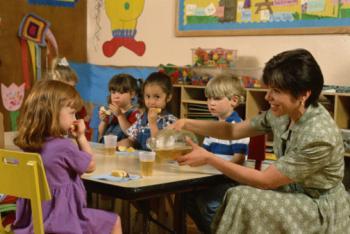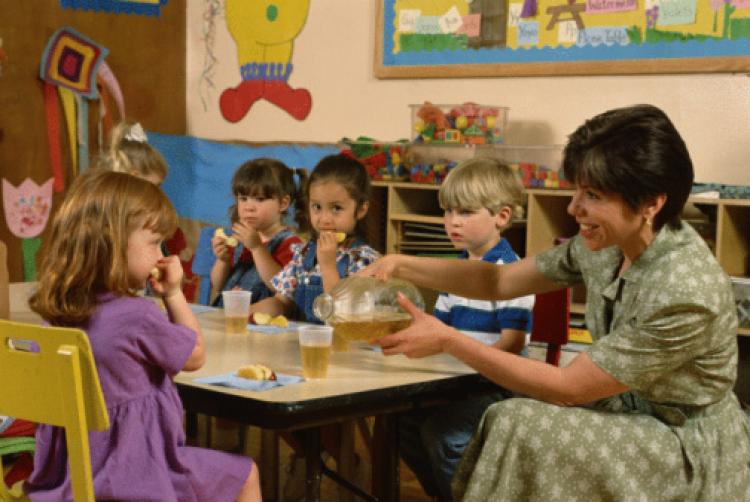Programs that teach school children social skills, or social and emotional learning (SEL), can improve grades, according to a study published in the journal Child Development on Feb. 4.
Researchers from the University of Chicago at Illinois analyzed data from 213 school-based SEL programs involving more than 270,000 students from kindergarten through to high school age. The students participating in SEL programs showed significantly improved social and emotional skills, with academic performance increasing by 11 percentile points.
Four recommended practices for developing these skills were identified, referred to by an acronym as the SAFE model. They are a “sequenced” set of activities, “active” forms of learning, at least one component “focused” on developing social skills, and the targeting of “explicit” SEL skills.
The study also noted that interpersonal, instructional, and environmental support enhance school performance, and that incorporating well-designed and well-instructed SEL programs into mainstream education can contribute to healthy development in children.
“We learned this is very practical for schools and doable in schools,” Joseph Durlak, psychology professor and chief investigator of the study, told Education Week. “There can be a payoff academically for these kids that compares to a lot of straightforward academic interventions, which is really sort of amazing.”
Corinne Gregory, founder of the SEL program Socialsmarts, said the correlation might be a result of students being calmer and more cooperative with their teachers.
“We focus all of our efforts on that nasty endpoint of the social-emotional continuum—bullying—rather than preventing all the other problems that lead up to that,” such as disrespect in the classroom or cheating, Gregory said, according to Education Week. “By then, it’s almost too late in the game.”
Interestingly, the study showed that simple classroom-based programs were much more successful than large-scale programs incorporating parents and school-wide activities, such as Socialsmarts.
“The more comprehensive and broader programs tended to have more implementation problems,” Durlak said, according to Education Week. “Trying to do more in the schools tends to be harder, takes more coordination, involves more people—they’re a lot harder to pull off.”
Gregory said that although Socialsmarts has a successful track record, implementation of the program has been a “challenge.”
A similar study of 67 kindergarten children, published in the Early Childhood Education Journal in October 2009, also showed SEL to be beneficial, using a program called “Strong Start.”
The researchers, from Brigham Young University, found that children under 5 became more helpful, were more able to start or join a conversation, and showed less anxiety after being on this program for 10 weeks.
According to the study, “prosocial behaviors” are “essential in building and maintaining peer and adults relationships” and “depend on children’s ability to recognize and manage their own and others’ emotions, skills taught in Strong Start.”
The Chicago Tribune published a report in October last year about a local school, the Cossitt School in La Grange, that teaches social and emotional skills to students.
“You can’t just assume kids know how to show kindness or resolve conflict,” said Principal Mary Tavegia, according to the Tribune. “You’ve got to give them the tools as soon as they walk in the door.”
Tavegia converted to this style of teaching in the mid-1990s, after a school survey showed that children felt disconnected from each other, the staff, and the school.
Roger Weissberg, a professor of psychology at the University of Illinois at Chicago, was one of the researchers involved in the new SEL study.
Weissberg said that the Cossitt School is “a national model,” according to the Tribune. He has studied SEL for more than 25 years and is president of CASEL, the Collaborative for Academic, Social, and Emotional Learning, which promotes the benefits of SEL for students in preschool through to high school.
“Some teachers may be skeptical about (Social and Emotional Learning) at first, but they are won over when their students learn more, are more engaged and better problem solvers,” Weissberg said.
Researchers from the University of Chicago at Illinois analyzed data from 213 school-based SEL programs involving more than 270,000 students from kindergarten through to high school age. The students participating in SEL programs showed significantly improved social and emotional skills, with academic performance increasing by 11 percentile points.
Four recommended practices for developing these skills were identified, referred to by an acronym as the SAFE model. They are a “sequenced” set of activities, “active” forms of learning, at least one component “focused” on developing social skills, and the targeting of “explicit” SEL skills.
The study also noted that interpersonal, instructional, and environmental support enhance school performance, and that incorporating well-designed and well-instructed SEL programs into mainstream education can contribute to healthy development in children.
“We learned this is very practical for schools and doable in schools,” Joseph Durlak, psychology professor and chief investigator of the study, told Education Week. “There can be a payoff academically for these kids that compares to a lot of straightforward academic interventions, which is really sort of amazing.”
Corinne Gregory, founder of the SEL program Socialsmarts, said the correlation might be a result of students being calmer and more cooperative with their teachers.
“We focus all of our efforts on that nasty endpoint of the social-emotional continuum—bullying—rather than preventing all the other problems that lead up to that,” such as disrespect in the classroom or cheating, Gregory said, according to Education Week. “By then, it’s almost too late in the game.”
Interestingly, the study showed that simple classroom-based programs were much more successful than large-scale programs incorporating parents and school-wide activities, such as Socialsmarts.
“The more comprehensive and broader programs tended to have more implementation problems,” Durlak said, according to Education Week. “Trying to do more in the schools tends to be harder, takes more coordination, involves more people—they’re a lot harder to pull off.”
Gregory said that although Socialsmarts has a successful track record, implementation of the program has been a “challenge.”
SEL in Pre-School Children
A similar study of 67 kindergarten children, published in the Early Childhood Education Journal in October 2009, also showed SEL to be beneficial, using a program called “Strong Start.”
The researchers, from Brigham Young University, found that children under 5 became more helpful, were more able to start or join a conversation, and showed less anxiety after being on this program for 10 weeks.
According to the study, “prosocial behaviors” are “essential in building and maintaining peer and adults relationships” and “depend on children’s ability to recognize and manage their own and others’ emotions, skills taught in Strong Start.”
A National Model
The Chicago Tribune published a report in October last year about a local school, the Cossitt School in La Grange, that teaches social and emotional skills to students.
“You can’t just assume kids know how to show kindness or resolve conflict,” said Principal Mary Tavegia, according to the Tribune. “You’ve got to give them the tools as soon as they walk in the door.”
Tavegia converted to this style of teaching in the mid-1990s, after a school survey showed that children felt disconnected from each other, the staff, and the school.
Roger Weissberg, a professor of psychology at the University of Illinois at Chicago, was one of the researchers involved in the new SEL study.
Weissberg said that the Cossitt School is “a national model,” according to the Tribune. He has studied SEL for more than 25 years and is president of CASEL, the Collaborative for Academic, Social, and Emotional Learning, which promotes the benefits of SEL for students in preschool through to high school.
“Some teachers may be skeptical about (Social and Emotional Learning) at first, but they are won over when their students learn more, are more engaged and better problem solvers,” Weissberg said.






